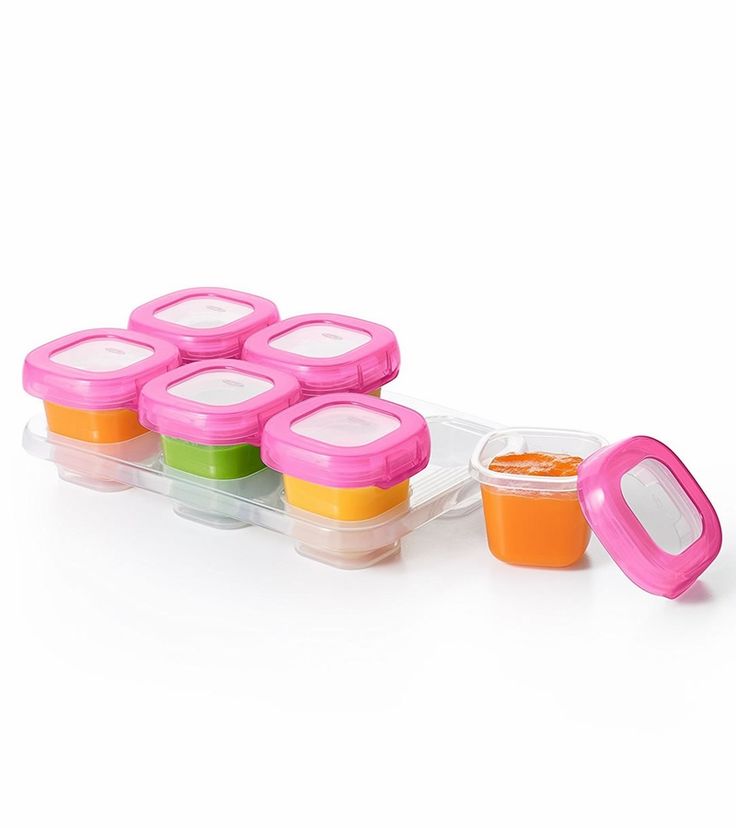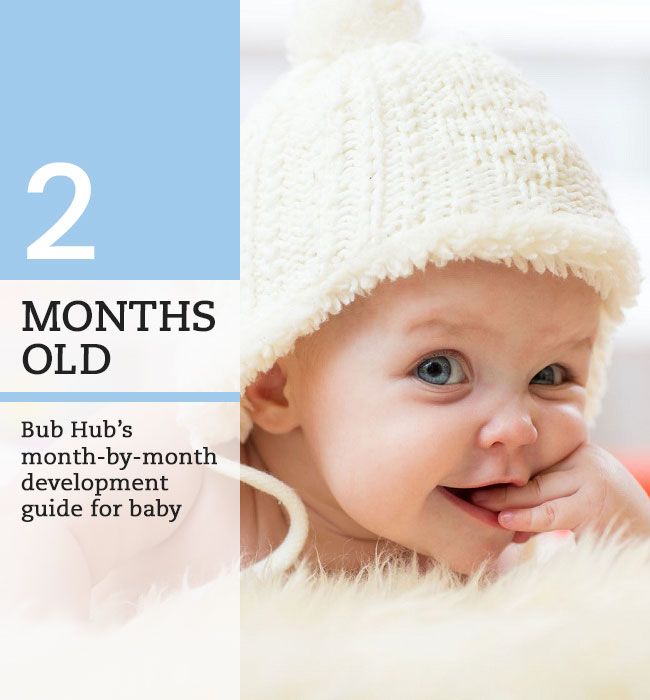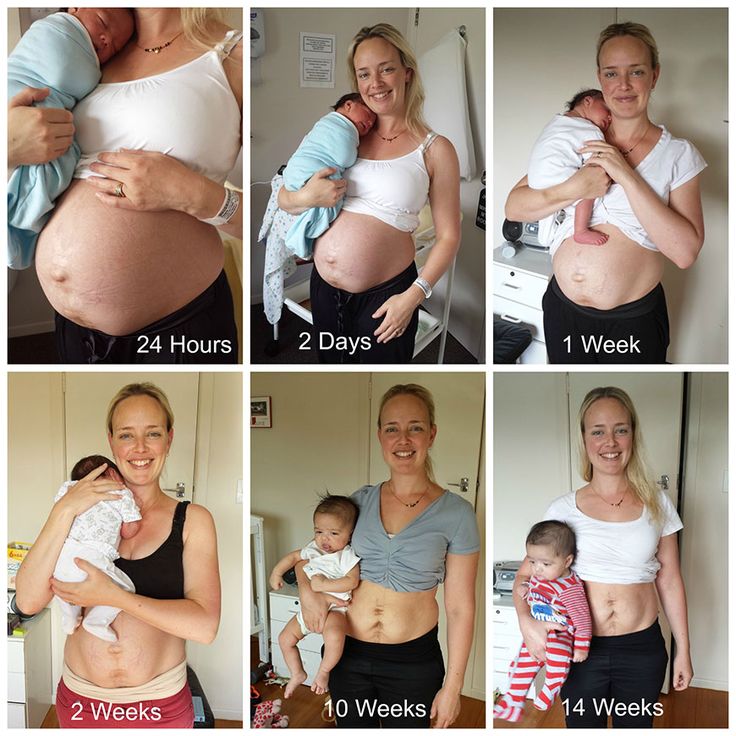Baby feeding through the night
How and when to wean your baby off of night feedings
Wondering when to wean your baby off the bottle or breast at night? Most babies can make it through the night without eating when they're 6 months old. You may be able to start night weaning your baby when they're 4 months old, or you may choose to wait until later. The key is to ensure your baby is getting plenty to eat during the day and right before bedtime. You can then gradually cut back on the amount of breast milk or formula and the number of times you feed your baby at night.
Can you hardly wait for your baby to sleep through the night? Fortunately, that milestone may be closer than you think. Many babies are able to sleep for at least six hours at a stretch when they're 3 months old, or weigh 12 to 13 pounds. However, some babies take longer: Roughly one quarter aren't sleeping six hours overnight by the time they hit their first birthday.
Babies wake during the night for many reasons, but notably because they're hungry. In the early months, babies need to eat every few hours, including through the night. Gradually, however, babies need to eat less and less at night – until by 6 months of age (possibly sooner or later), your baby may quit nighttime feedings and go up to 12 hours without waking to eat.
Sometimes babies self-wean from night feedings with no help from you – they'll just sleep through the night suddenly and never look back. But sometimes you have to nudge them, especially if they're down to one nighttime feeding they just aren't dropping.
Night weaning your baby means ensuring they get enough to eat during the day so they don't need to wake at night to eat. Here's how to get started.
When will my baby be ready for night weaning?
This varies, but somewhere between the ages of 4 and 6 months, most babies get enough calories during the day to sustain them for five or six hours at night.
It's not unusual for younger babies to sleep for much longer stretches without needing to eat – or for older ones to continue waking up to eat. Even if your baby doesn't need to eat in the middle of the night, they may still wake up wanting to. Babies who are used to eating several times a night tend to wake up out of habit, and it can take time to change this routine.
Even if your baby doesn't need to eat in the middle of the night, they may still wake up wanting to. Babies who are used to eating several times a night tend to wake up out of habit, and it can take time to change this routine.
If you've recently gone back to work and are less available during the day, your baby may want to nurse or take a bottle at night as a way of reconnecting with you. And you may notice that your baby wakes up more often when they're teething, if they catch a cold, or when they're mastering a developmental milestone.
For all these reasons, it's helpful to approach the weaning process gradually and gently. Keep in mind that your baby is still young and has a tremendous need for comfort, closeness, and reassurance – particularly from you.
Should I start night weaning my baby?
Many experts recommend night weaning around the time babies are 6 months old, because at that point most babies don't physically need to eat at night. At this age, most babies wake to eat out of habit. And if you do wait to night wean your baby when they're older, know that it can be more challenging to wean a toddler off of night feedings. But the timeline isn't set in stone: You can start trying to get your baby to sleep longer stretches between feedings as early as 4 months of age, or much later than 6 months old.
At this age, most babies wake to eat out of habit. And if you do wait to night wean your baby when they're older, know that it can be more challenging to wean a toddler off of night feedings. But the timeline isn't set in stone: You can start trying to get your baby to sleep longer stretches between feedings as early as 4 months of age, or much later than 6 months old.
Ultimately, it's your choice whether to night wean or not. It's hard to maintain your own health and well-being if you're chronically sleep deprived. The decision to end your baby's night feedings depends in part on how they're affecting you.
If you enjoy nursing or giving a bottle to your baby at night, you can continue until your baby eventually quits on their own. On the other hand, if you find yourself feeling grumpy and exhausted, it may be time.
Keep in mind that your baby's sleep and nutritional needs may vary if they aren't gaining weight as expected or if they were born prematurely. If you're not sure whether your baby's ready for night weaning, talk to your child's doctor. The doctor can help you sort through any issues and help you make your decision based on how your baby's growing.
The doctor can help you sort through any issues and help you make your decision based on how your baby's growing.
How to wean your baby off of night feedings
Once your baby is ready to give up night feedings, try the following techniques:
- Make sure your baby gets plenty to eat throughout the day. As your baby grows and becomes more active, they may not want to stop to nurse or take a bottle during the day, and they may try to make up for it at night. To make sure they get enough to eat, take scheduled breaks during the day for a quiet bottle or nursing session in a place with no distractions. (If you're not sure that your child is eating enough, check their growth by having them weighed at the doctor's office.)
- Start the night weaning process slowly and gradually. Nurse your baby for a shorter period of time on each breast or give them a smaller amount of breast milk or formula in their bottle when they wake at night. Try to prolong the intervals between feedings by patting and comforting your baby back to sleep.

- Offer extra feedings in the evening. If your baby goes to bed with a full tummy, they're less likely to wake up hungry in the middle of the night.
- Give a "dream feed." After your baby's already asleep – say at 11 p.m. or so – you may want to wake your baby for a final feeding before you go to bed yourself.
- Avoid night weaning during times of transition. For example, wait if you're just about to return to work or take a family vacation. If you've recently become less available during the day, make sure to give your baby extra cuddle time when you're together, so they'll feel more connected and be less likely to seek comfort in the middle of the night.
- Gradually eliminate feedings, one at a time. Gently soothe and comfort your baby when they wake up, and explain that it's time to sleep, not eat.
- Keep any feedings you do at night short and sweet. That way your baby won't wake to eat just because they've come to expect late-night cuddles.
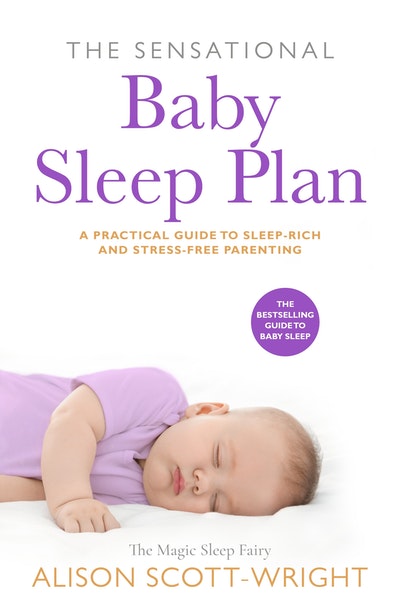
- Consider sleep training. If your baby seems to eat plenty during the day but still wakes at night, it may not be because they're hungry but because they're used to it. At this point, you may want to consider baby sleep training to help your little one learn to self-soothe back to sleep.
For more help night weaning your baby from a pediatric sleep physician, check out our course, Baby Sleep 101.
Night weaning if you're breastfeeding
Suddenly stopping the frequency of your nighttime nursing sessions can lead to painful engorgement and increased likelihood of developing an infection known as mastitis. That's one more reason it's good to start slow and drop one feeding at a time, so your breasts can get used to your new routine more easily. In the meantime, you may find that you initially need to wake up and pump breast milk during the night to relieve engorgement.
A key to night weaning your baby is making sure they're getting enough to eat during the day. You may find that you need to pump after one or more feedings during the day, then save the additional milk for an extra feeding in the evening. This can help boost your milk supply as well as ensure that your baby fills up before bedtime. As always, you'll know your baby is getting enough to eat if they're gaining weight as expected and having at least six wet diapers during the day.
You may find that you need to pump after one or more feedings during the day, then save the additional milk for an extra feeding in the evening. This can help boost your milk supply as well as ensure that your baby fills up before bedtime. As always, you'll know your baby is getting enough to eat if they're gaining weight as expected and having at least six wet diapers during the day.
Once your baby is around 6 months old, they'll start solids. Breast milk will still be your baby's main source of nutrition, although you may find that they need to breastfeed less as they gradually eat more solid foods.
Night weaning if you're formula feeding
If you're bottle-feeding and ready to night wean your baby, make sure they get enough to eat during the day. By 6 months of age, formula-fed babies need to eat between 6 to 8 ounces (or 180 to 240 mL) per bottle, four to five times every 24 hours.
Once your baby starts solids, formula will still be their main source of nutrition. But with time, solid foods will cover more of your baby's nutritional needs – and you'll eventually start giving your baby fewer bottles with slightly more formula in each. The bedtime bottle is usually the last to go, and even once you wean your child off it, you may want to give them a bedtime snack or a cup of milk to help them make it through the night without getting hungry.
But with time, solid foods will cover more of your baby's nutritional needs – and you'll eventually start giving your baby fewer bottles with slightly more formula in each. The bedtime bottle is usually the last to go, and even once you wean your child off it, you may want to give them a bedtime snack or a cup of milk to help them make it through the night without getting hungry.
Learn more:
- Baby sleep 101 virtual course
Breastfeeding at night - La Leche League GB
Breastfeeding at night is one of the most discussed topics at La Leche League meetings, both in person and online. This is often because breastfeeding at night, especially in the early days, can be so important to establishing a successful breastfeeding relationship. It is also because of its inextricable link with the topic of sleep, which can be one of the biggest changes many mothers and families experience when they have a new child.
There is no doubt that caring for a new baby can be exhausting, especially if you feel you are not getting enough sleep. Understanding why breastfeeding at night is so important can help. There is a huge amount of both reliable and rather less reliable information on the internet and in countless parenting books about what infant sleep ‘ought’ to be like, and therefore what infant night-time feeding ‘ought’ to be like. This article is designed to give mothers and parents the information and reassurance they need to inform their own night-time breastfeeding approach, including some helpful tips on how to get more rest when you can.
Understanding why breastfeeding at night is so important can help. There is a huge amount of both reliable and rather less reliable information on the internet and in countless parenting books about what infant sleep ‘ought’ to be like, and therefore what infant night-time feeding ‘ought’ to be like. This article is designed to give mothers and parents the information and reassurance they need to inform their own night-time breastfeeding approach, including some helpful tips on how to get more rest when you can.
Breastfeeding at night in the early weeks and months is normal and important
Babies wake to feed at night in the early weeks and months (and often beyond) for a number of important reasons. Breastfeeding at night is a vital part of establishing and maintaining a good milk supply and ensuring that newborn babies get all the milk they need to grow and thrive. Breastmilk works on a supply and demand basis: the more milk that is removed, the more milk your breasts make. For the majority of mothers, this means milk needs to be removed roughly every 2-3 hours in the early weeks. Although some babies may sleep for slightly longer periods overnight, perhaps 3-4 hour stretches, newborn babies will typically wake several times a night to feed. This also helps to ensure that you don’t get engorged breasts, which may lead to blocked ducts or mastitis.
For the majority of mothers, this means milk needs to be removed roughly every 2-3 hours in the early weeks. Although some babies may sleep for slightly longer periods overnight, perhaps 3-4 hour stretches, newborn babies will typically wake several times a night to feed. This also helps to ensure that you don’t get engorged breasts, which may lead to blocked ducts or mastitis.
Newborn babies often wake to feed because their bodies have signalled that they are hungry. However, newborns (and babies and children of all ages) also wake at night for many other reasons, including being scared or uncomfortable, being hot or cold, feeling the need for comfort and connection, and so on. As adults, we have developed ways of meeting these needs ourselves – adjusting a pillow, having a sip of water, cuddling our partner. As babies have no way of independently meeting these needs, they rely on their mother or parent to meet them. Breastfeeding at night offers mothers a way of easily and conveniently meeting the vast majority of these needs in one go.
Lots of research shows that night waking is the biological norm for babies.i You can read more about it here as well as in Sweet Sleep, La Leche League International’s exhaustive publication on nights and naps for breastfeeding families. Research also shows that, overall, breastfeeding mothers get more sleep than mixed- and formula-feeding mothers. This is for a number of reasons, including the impact of natural hormones and chemicals released for baby and mother when breastfeeding at night. There is also a perception that babies who have formula milk sleep longer than breastfed babies. Evidence shows this is not the case.ii “Despite the common perception that supplementing an infant’s diet with formula milk or solid food will promote sleep, a recent study found that there was no difference in the frequency of night waking between breastfeeding and formula feeding infants aged 6-12 months old. Infants who received more milk or solid feeds during the day were less likely to feed at night but not less likely to wake. ”iii
”iii
Breastmilk at night
Research shows that breastmilk changes all the time, in response to all sorts of things, like the needs and health of your baby, temperature, and the time of day. For most mothers, breastmilk will gradually increase in fat content throughout the day. During the evening, young babies often cluster feed, taking in frequent feeds of this fattier milk, which tends to satisfy them enough to have their longest stretch of sleep. This cluster feeding in the early months may go on late into the evening when you were hoping you would be asleep, which can naturally feel exhausting.
Overnight, your prolactin levels – the hormone designed to support milk production – are at their highest. So, when your baby feeds frequently at night, the message to your body to boost milk supply is even stronger. Breastmilk at night is also high in the amino acid tryptophan, which in turn helps your baby to make melatonin, which is used by the body to develop its circadian rhythm (our internal system for recognising the difference between day and night) and to sleep better. Hormones produced while breastfeeding also help you to relax and fall more quickly back to sleep, which may be why you find yourself nodding off so easily while breastfeeding.
Hormones produced while breastfeeding also help you to relax and fall more quickly back to sleep, which may be why you find yourself nodding off so easily while breastfeeding.
Given the fact that the hormones in night-time breastmilk help you and your baby to get back to sleep quickly, feeding babies to sleep is completely natural. A mother and baby’s bodies are designed to work in tandem this way. Breastfeeding your baby to sleep helps baby feel calm, safe and secure. Over time, babies stop falling asleep at the breast so easily, and eventually all babies or children stop needing the breast to fall asleep. Sleep is not a taught development, and all children get there in their own time. So, while breastfeeding to sleep continues to work, many mothers find it a wonderful, loving and responsive way to help their children doze off.
Breast-sleeping / Co-sleeping
Safely sharing a bed with your baby, or having your baby sleep very close to you in a sidecar cot or similar, is one way of getting more sleep and rest. The majority of other mammals sleep with their young, and our own infants are hard-wired to expect this too. For many breastfeeding mothers, learning to feed lying down and being able to fall back asleep safely with baby is when things start to feel a lot more manageable at night. Some mothers may start out nursing their babies at night sat up in bed, but many soon find that mastering breastfeeding lying on their side can really help everyone to get more sleep, especially as baby gets a bit older and can latch on by themselves. Mums can feed from both breasts when lying on one side by simply tilting their body forwards more. The same principles for getting a comfortable, deep latch apply when side-lying as when feeding upright. It may take a little practice, but overall it’s easier and less disruptive for both mother and baby at night. Research shows that breastfeeding tends to be more successful overall for mothers that co-sleep than those that keep their baby separated from them at night.
The majority of other mammals sleep with their young, and our own infants are hard-wired to expect this too. For many breastfeeding mothers, learning to feed lying down and being able to fall back asleep safely with baby is when things start to feel a lot more manageable at night. Some mothers may start out nursing their babies at night sat up in bed, but many soon find that mastering breastfeeding lying on their side can really help everyone to get more sleep, especially as baby gets a bit older and can latch on by themselves. Mums can feed from both breasts when lying on one side by simply tilting their body forwards more. The same principles for getting a comfortable, deep latch apply when side-lying as when feeding upright. It may take a little practice, but overall it’s easier and less disruptive for both mother and baby at night. Research shows that breastfeeding tends to be more successful overall for mothers that co-sleep than those that keep their baby separated from them at night.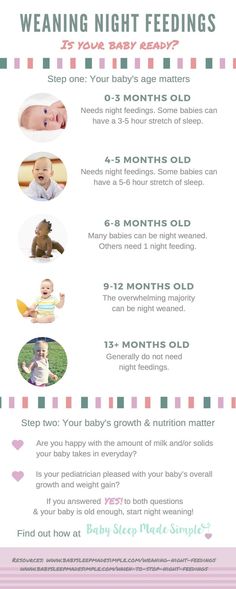 You can read more about how to co-sleep or breast-sleep safely with your baby here
You can read more about how to co-sleep or breast-sleep safely with your baby here
Breastfeeding at night after the early months
Many mothers go through patches where their baby may wish to breastfeed more or less at night, especially within the first year. This will be related to a whole host of reasons, including growth spurts, teething, illness, and learning new skills such as sitting, crawling and walking. Like so much else with babies and children, the frequency of breastfeeds at night is not a linear progression. Phases of increased night feedings are usually relatively short-lived and you may find that co-sleeping is a really valuable tool for managing those phases. Increased periods of waking and breastfeeding around four-six months are very common and are not a sign that your baby is hungry and needs formula and/or solids. You can read more about this in our article ‘What happens at four months’
As your baby gets older and bigger, you may find that night feeding becomes much easier.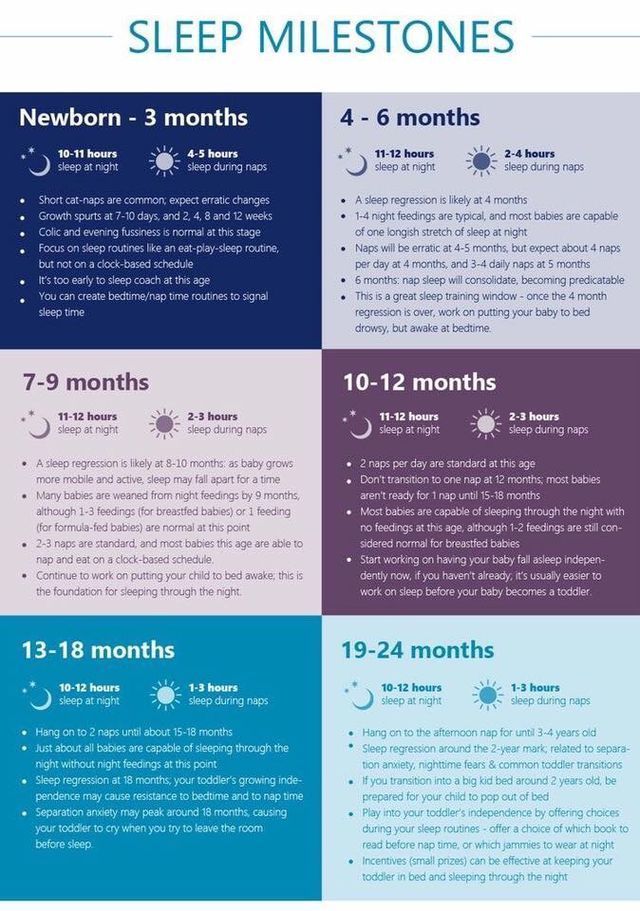 While in the early days you may feel the need to switch on a light or sit up in bed in order to latch your baby comfortably onto your breast, as your baby gets stronger and learns to self-latch, feeding at night can be a simple matter of rolling over and putting the breast near your baby, who will manage the rest. Night feeds often become quicker too. Some mothers use breast compressions as a way of speeding up feeds. Being able to help their older baby back to sleep quickly with a breastfeed helps many mothers get the most sleep.
While in the early days you may feel the need to switch on a light or sit up in bed in order to latch your baby comfortably onto your breast, as your baby gets stronger and learns to self-latch, feeding at night can be a simple matter of rolling over and putting the breast near your baby, who will manage the rest. Night feeds often become quicker too. Some mothers use breast compressions as a way of speeding up feeds. Being able to help their older baby back to sleep quickly with a breastfeed helps many mothers get the most sleep.
Coping with the challenges
Knowing that waking at night to breastfeed is positive for our supply and our baby, and that it is the biological norm, can often be reassuring for mothers and parents. Nevertheless, sleep deprivation can be really challenging for many families. It can feel especially hard if your baby is waking more than your friends’ babies, or if they are an older baby still waking up more than you had expected.
New parents often get asked about their babies’ sleep and their approach to feeding at night.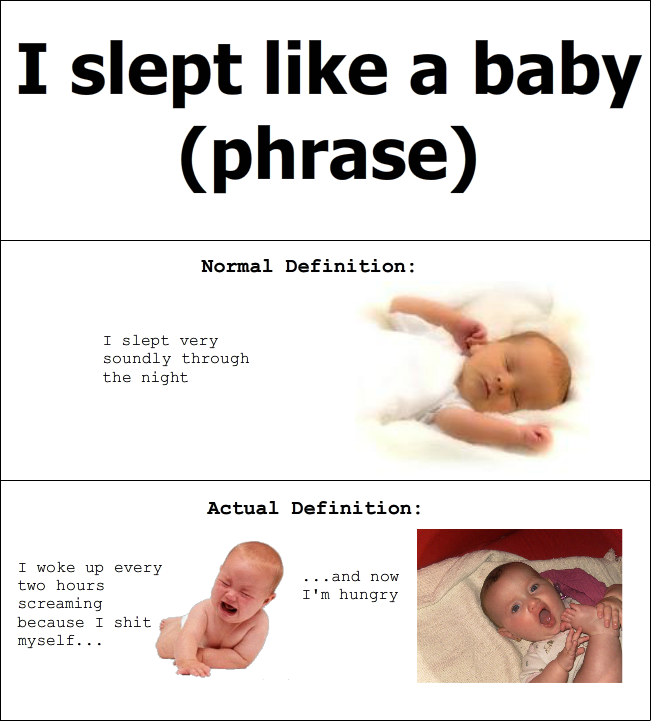 These conversations can sometimes lead to (unwanted) comments about what is normal, what you ‘should’ be doing, and how to ‘fix’ things. And if you are feeling really tired or at a low point, you may be thinking that you do need to find a ‘solution’ and try some of those suggestions. The many unhelpful sources out there setting unrealistic expectations may be undermining your self-confidence as a mother. Perhaps you’re wondering what a loving and respectful approach that suits both you and your baby would be?
These conversations can sometimes lead to (unwanted) comments about what is normal, what you ‘should’ be doing, and how to ‘fix’ things. And if you are feeling really tired or at a low point, you may be thinking that you do need to find a ‘solution’ and try some of those suggestions. The many unhelpful sources out there setting unrealistic expectations may be undermining your self-confidence as a mother. Perhaps you’re wondering what a loving and respectful approach that suits both you and your baby would be?
First, it’s important to say that you are not alone. At any point in time there are hundreds of thousands, if not millions, of mothers up and breastfeeding their babies – of varying ages – at night. A turning point for some of them is when they are able to relax their expectations of themselves and their babies a little. Some mothers also find that being constantly reminded of when they have been woken up is actually part of the problem, and they decide to ignore the clock and not to use their phones at night.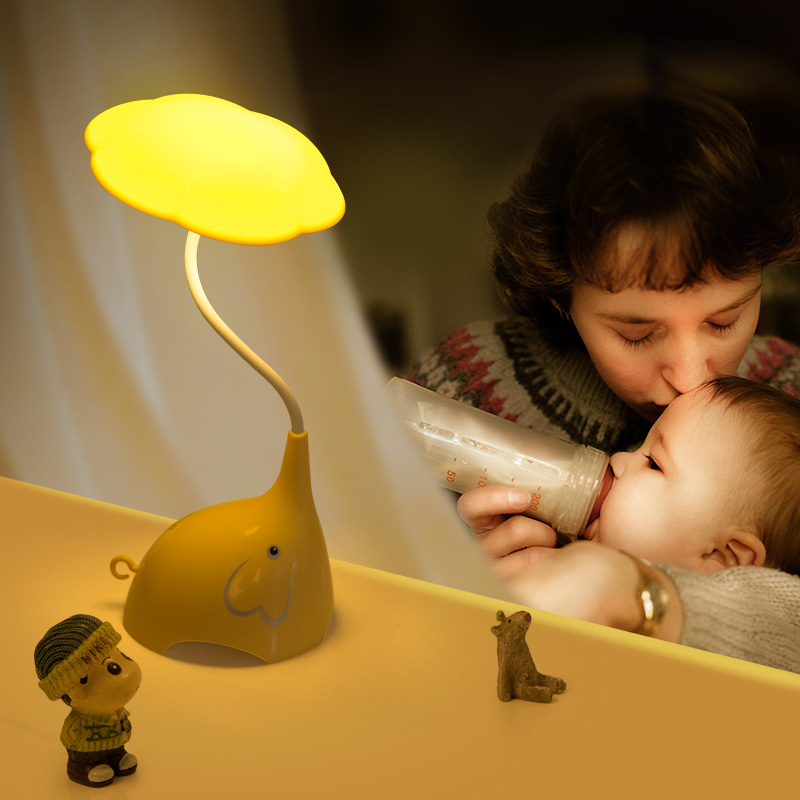
Being responsible for all the night-feeds can feel exhausting, or even unfair. Sometimes well-intentioned comments may suggest that a partner or other care-giver could feed the baby at night with a bottle. It can be useful to remember that the hormones in night-time milk make it easier for both you and your baby to get back to sleep quickly. And since the hormones in night-time milk are made at night-time, there is some evidence that giving your baby breastmilk expressed at other times does not always have quite the same effect. It is also sometimes easy to overlook the practicalities of another care-giver taking care of night-feeds. Mothers will often wake up when their baby does anyway, and may struggle to get back to sleep if they can hear their baby being upset while waiting for a bottle to be warmed up. Most mothers will also need to pump or hand express milk during the night to protect their supply and avoid engorgement, so they are often awake anyway during the time their baby is being fed by their partner.
Even though breastfeeding at night may be the responsibility of the mother alone, there are lots of ways to get supported so that things feel easier. For example, sometimes dads and partners get up with the baby first thing in the morning to give mums some extra time in bed, which can make a big difference to how tired they feel. Good communication is really helpful – ask for help with other things where you can and be clear about the kind of support you need. It’s OK not to enjoy breastfeeding every second, and it’s OK to complain about being tired: that doesn’t mean you don’t want to do it, so you can explain that asking ‘Why don’t you just stop?’ is not helpful and that you’d rather be asked ‘How can I help you find time to rest today?’
If you are really struggling with tiredness, you may want to think of ways to adapt your own routines for a short while to help you get more rest – perhaps sleeping more during the day, or going to bed earlier when your baby has her first ‘longer’ stretch of sleep.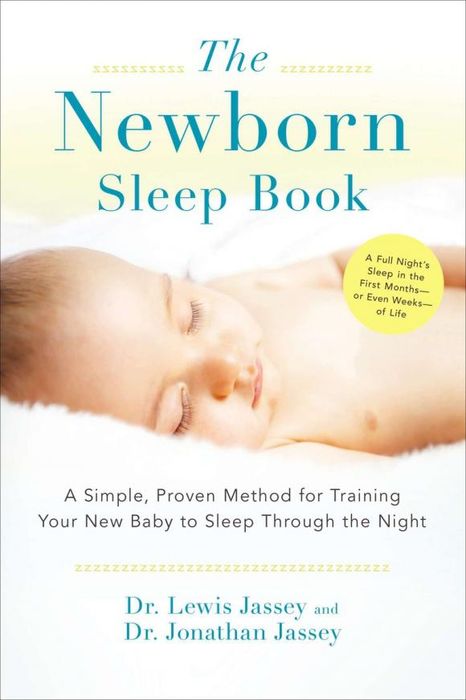 It can also be a great time to join an LLL group meeting with other breastfeeding mothers, as hearing that they are experiencing the same challenges can be really reassuring. Mothers often get bombarded with unrealistic expectations of infant sleep, and it’s precisely this misalignment of expectation and reality that can cause stress.
It can also be a great time to join an LLL group meeting with other breastfeeding mothers, as hearing that they are experiencing the same challenges can be really reassuring. Mothers often get bombarded with unrealistic expectations of infant sleep, and it’s precisely this misalignment of expectation and reality that can cause stress.
Another challenge that mothers may experience (usually once their baby is a bit older) is a feeling of nursing aversion or irritability, particularly during night-time feeds. These feelings can be very normal and are often linked to tiredness or feeling ‘touched out’. You may experience them more when your baby is waking or feeding a lot more frequently, for example when teething or feeling ill. You may also experience these feelings when there is a change in your own hormones, for example, during ovulation or your period. There is some anecdotal evidence that taking magnesium supplements can be helpful. Many mothers describe these feelings as irrational and usually short-lived; they can be a sign that you need to give yourself a little ‘self-care’ – perhaps asking for some more help during the day so that you can rest or focus on yourself.
Nursing aversion can sometimes lead to feelings of guilt about not enjoying breastfeeding, and make you wonder whether it is a sign you need to stop. There are some helpful information groups on social media where mothers share their nursing aversion experiences, as well as tips and tricks that helped them overcome those feelings. Like anything in life, you may not enjoy breastfeeding every moment of every day; that’s OK. Take things one day at a time, listen to your body and your baby.
Stopping breastfeeding at night
Breastfeeding at night meets a baby’s needs in a variety of ways. For many mothers, it’s the easiest way to settle their baby back to sleep when they wake at night, and they continue to use it for as long as it continues to work. It is not a bad habit and all babies eventually fall asleep and stay asleep without the breast. You may decide that you are happy with breastfeeding back to sleep, but you are feeling pressured by others’ expectations about what your baby ‘should’ be doing.
Some books suggest that after six months babies no longer need night feeds. Not only is this an arbitrary figure, taking little account of the different circumstances of different babies and families, but it also has no evidence to back it up. Sometimes, mothers worry that breastfeeding at night is what is causing their baby to wake up several times. This is not the case. Babies wake for lots of reasons and it is better to think of breastfeeding as a tool that meets the vast majority of those needs. Some sources claim that babies after a certain age don’t ‘need’ breastmilk at night any longer, but breastfeeding goes on meeting a baby’s needs for a long time. Many babies will continue to need the calories from night-time breastmilk, as well as all the other comforts that it brings, for some time after six months, and sometimes well beyond.
Some families may feel that their baby is ready to cut some breastfeeds at night or stop breastfeeding at night altogether. Generally speaking, the evidence seems to suggest that night-weaning is best left until after around 18 months. Many mothers find that gently cutting down feeds at this point is much easier, as the baby is learning to talk and the mother can help to explain any changes. There is helpful information about approaches to cutting down night feeds here. Any changes are best approached gradually and respectfully, so that you can preserve the important close connection to the baby at night-time. As your baby gets older, you will discover ways of being responsive to their needs at night that might not include offering your breast every time. For example, you may find that you are able to try other things like rocking, patting and shushing before offering the breast. These may not work initially, but over time, as your baby develops, you may find that in some cases these soothe him back to sleep. As always, you are the expert on your baby and you’ll be able to assess whether your child is ready to stop breastfeeding at night, or whether it would be easier to try night weaning later on.
Many mothers find that gently cutting down feeds at this point is much easier, as the baby is learning to talk and the mother can help to explain any changes. There is helpful information about approaches to cutting down night feeds here. Any changes are best approached gradually and respectfully, so that you can preserve the important close connection to the baby at night-time. As your baby gets older, you will discover ways of being responsive to their needs at night that might not include offering your breast every time. For example, you may find that you are able to try other things like rocking, patting and shushing before offering the breast. These may not work initially, but over time, as your baby develops, you may find that in some cases these soothe him back to sleep. As always, you are the expert on your baby and you’ll be able to assess whether your child is ready to stop breastfeeding at night, or whether it would be easier to try night weaning later on.
Conclusion
Having a baby, and eventually a toddler, can of course be exhausting.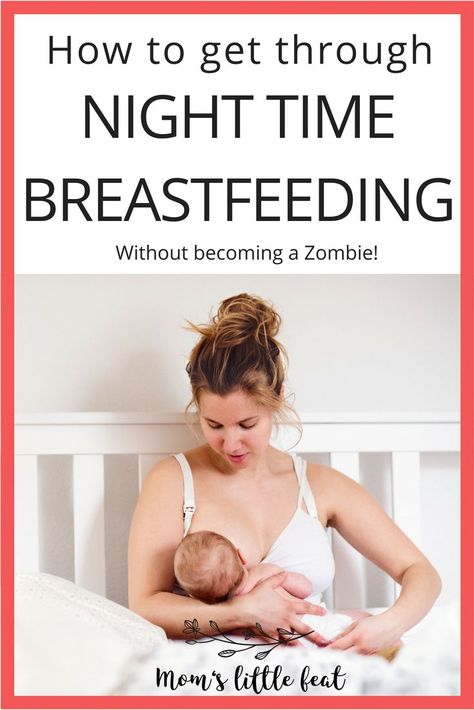 Since responding to your baby’s intense needs at night can feel overwhelming, being able to access reliable information about infant sleep and night-time feeding behaviour can help you adjust your expectations. You may be happy breastfeeding your baby back to sleep as often as needed, yet you may feel pressured by well-meaning comments from friends and family about what your baby’s sleep ‘should’ be like. Sometimes spending time with others who understand what you’re going through, and who are supportive or your choices, can help you feel confident to make the decisions that work for you. Chatting with other mothers at a La Leche League meeting, in person or online, about what they found helpful, and exchanging ideas for getting more sleep may help you decide what’s right for you and your baby. Never forget that you know your baby best!
Since responding to your baby’s intense needs at night can feel overwhelming, being able to access reliable information about infant sleep and night-time feeding behaviour can help you adjust your expectations. You may be happy breastfeeding your baby back to sleep as often as needed, yet you may feel pressured by well-meaning comments from friends and family about what your baby’s sleep ‘should’ be like. Sometimes spending time with others who understand what you’re going through, and who are supportive or your choices, can help you feel confident to make the decisions that work for you. Chatting with other mothers at a La Leche League meeting, in person or online, about what they found helpful, and exchanging ideas for getting more sleep may help you decide what’s right for you and your baby. Never forget that you know your baby best!
Written by Rhiannon Butterfield, LLL Cambridge. February 2021
Endnotes:
i Baby Sleep Info Source (BASIS) – Durham University
ii Brown A, Harries V. Infant Sleep and Night Feeding Patterns During Later Infancy: Association with Breastfeeding Frequency, Daytime Complementary Food Intake, and Infant Weight. Breastfeeding Medicine. 2015;10(5):246-252.
Infant Sleep and Night Feeding Patterns During Later Infancy: Association with Breastfeeding Frequency, Daytime Complementary Food Intake, and Infant Weight. Breastfeeding Medicine. 2015;10(5):246-252.
iii https://gpifn.org.uk/sleep-and-safe-sleeping/
Further reading:
Safer Sleep and the Breastfed Baby
I need some sleep!
LLLI: Safe Sleep Seven
The reasons why nightwaking is the biological norm
Letting babies cry: the science behind the studies
Sweet Sleep available in our LLLGB Shop
Night feeding weaning
Weaning from night feeds and uninterrupted sleep throughout the night is the dream of many new parents. However, kids have completely different plans in this regard. Many of them continue to wake up to eat or drink, even at 3 years old. We understand why this happens and whether it is possible to wean a child to eat at night.
Why night feedings are needed
Night feedings are not a whim, but a necessity for the normal development of the baby.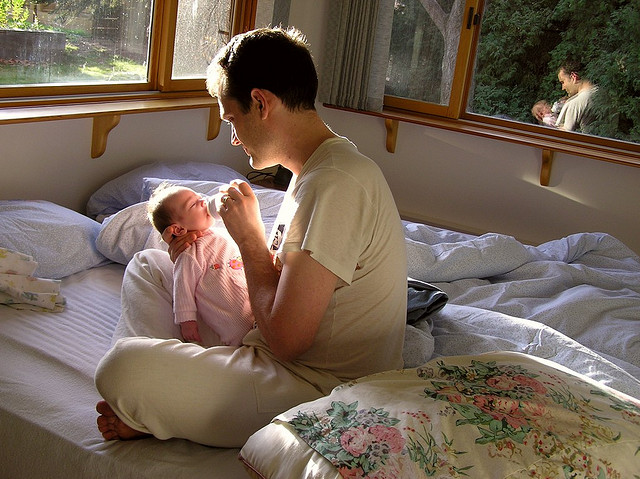 First of all, they are needed by the child, and then by the mother. The main reasons why a child needs to wake up at night include the following:
First of all, they are needed by the child, and then by the mother. The main reasons why a child needs to wake up at night include the following:
- physiological immaturity. Compared to adults, children's metabolism is very fast. This is due to the active growth and development of the baby. In addition, both formula and breast milk are absorbed very quickly - on average, in 2-4 hours.
- Features of lactation. The amount of milk in the mother is regulated precisely by feeding at night, since the hormone prolactin is actively produced at this time of day. If a woman wants to breastfeed a baby, at least one nightly application is necessary.
- evolutionary mechanisms. According to one hypothesis, night waking is an evolutionary mechanism that protects the baby from sudden infant death syndrome.
- Compensatory. If the mother removes daytime feeds, the baby may begin to wake up more often at night to compensate for the lack of daytime feedings.
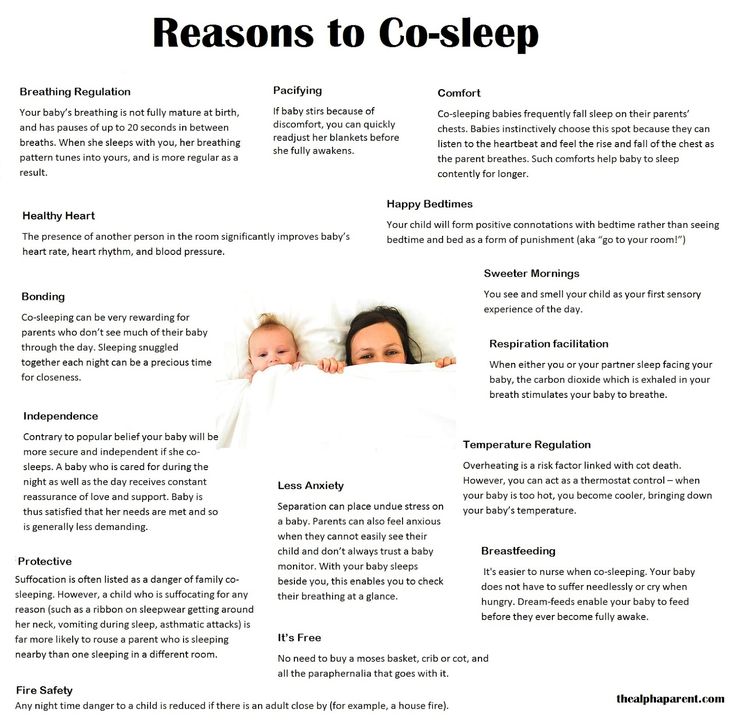 This is more relevant for children on breastfeeding one year old and older.
This is more relevant for children on breastfeeding one year old and older.
If night waking does not cause inconvenience to mother and baby, then there is no need to specially clean them. You can wait until the baby's nervous system matures and he refuses such feedings on his own.
� When the baby is ready to leave night feeds
The ability to sleep through the night without waking up for a night snack develops as the baby's nervous and digestive systems mature. Attempts to reduce nighttime feedings before this point can end in failure, exhaust the mother and cause sleepless nights for the whole family.
The following terms are considered physiological:
| Type of feeding | When do night feeds end? |
| breast | A breastfed infant stops eating at night around 18–24 months of age. |
| mixed | Depends on what kind of food (formula or breast milk) prevails in the baby's diet. |
| artificial | Formula is considered a heavier product, so formula-fed babies may stop eating at night as early as 9-12 months. |
Some babies, whether breastfed or formula-fed or mixed-fed, may start sleeping without waking up for nighttime feeds as early as 6 months. If the mother has enough milk, and the baby is gaining weight normally, you do not need to specifically wake the baby to feed him.
Important! Night feedings are the key to successful lactation. If the baby of the first months of life does not wake up at night, you need to offer the breast to a sleepy baby. This stimulates the production of milk and will help to avoid problems with its quantity.
How to stop feeding your baby at night on EW
It is much easier to remove night feedings from a baby on artificial feeding than on breastfeeding. This is due to the fact that a baby on IV immediately gets used to the schedule, and with a greater nutritional value of the mixture, and less difficulty with its replacement. On average, babies who eat formula wake up only 2-3 times per night, so it will not be difficult to refuse such a number of feedings.
On average, babies who eat formula wake up only 2-3 times per night, so it will not be difficult to refuse such a number of feedings.
However, weaning from nighttime eating should begin no earlier than 6 months. By this age, the brain of children in general is ready to sleep without awakening from 6 to 8 hours. What can be done to reduce the number of feedings?
- If the mother practices co-sleeping, you should not combine moving the child to the crib and accustoming to uninterrupted sleep at night. It is better to reduce the number of wakings first, and then move the baby to your bed.
- If the baby has entered a clear mode, you can gradually increase the intervals between night feedings. You can move them no more than half an hour at a time.
- When the baby asks for food at night, offer him water first and only then formula. Perhaps he wakes up from thirst, not from hunger. This approach will help increase the intervals between feedings.

- After a year, a hearty dinner helps to improve sleep. Feed your baby porridge or porridge with meat 2-3 hours before bedtime. Such food is digested for a long time and will help the baby sleep better.
It is important to remember that the reduction in feeding should not be accompanied by tears and tantrums of the baby. Restless night sleep and discomfort will cause the baby to wake up more often.
Weaning from night feeds should not be a problem for the baby and other family members. Our doctors will remotely advise on the features of children's sleep and help you choose the right moment for weaning from night feedings.
How to remove night feedings with breastfeeding
The regimen of children who are exclusively breastfed is different from the regimen of children who are fully or partially artificially fed. For children on IV, night feedings, rather, are a consequence of the characteristics of the child's psyche and metabolism. For children on breastfeeding, they are rather a necessity.
For children on breastfeeding, they are rather a necessity.
It is at night that the hormone prolactin is produced, which regulates the production of milk in the mother. If you do not feed your baby at night or leave such feedings too early, this will directly affect the amount of milk and, as a result, the development and growth of the baby.
It is believed that during weaning, night feedings are the last to stop. However, you can reduce the number of nightly attachments before the mother decides to complete breastfeeding. What can be done for this?
- If the mother practices co-sleeping, moving the baby to her crib will help reduce the number of nightly attachments. At first, you can put a baby bed with the side removed to the parent one and shift the baby after he falls asleep. Then the side rises, and the bed moves away.
- After a year, giving up or reducing the number of night feedings helps a hearty dinner and a bowl of water instead of breastfeeding at night.
 You can also give kefir or a mixture at night.
You can also give kefir or a mixture at night. - The number of nightly attachments is also affected by daytime feeding. If the mother cancels too many daytime attachments and severely restricts the baby, he can compensate for the lack at night. Therefore, if the mother does not plan to completely cancel breastfeeding, it is better to allow the toddler to apply during the day.
If the mother does not plan to stop breastfeeding in the near future, then it is better to postpone weaning from night feedings to a more suitable time for this and wait for the moment when the baby himself refuses nightly feedings. After a year, you can teach the child self-attachment. In this case, neither the baby nor the mother practically wakes up at night.
Read also What kind of breastfeeding is considered prolonged
FAQ
How many times does the child eat at night?
+
The number of night feedings depends on the age and type of feeding. Formula-fed babies wake up 2-3 times a night on average. Breastfed babies may wake up more often.
Formula-fed babies wake up 2-3 times a night on average. Breastfed babies may wake up more often.
When do children wake up at night?
+
The baby's brain is not adapted to a long night's sleep. This is believed to be an evolutionary mechanism that protects infants from sudden infant death syndrome. The child begins to sleep more than 6 hours in a row after a year, and all night - closer to three.
What can I do to stop my child from eating at night?
+
You can reduce the number of nightly feedings by moving the baby to a separate bed, starting to feed a denser dinner and gradually increasing the intervals between nightly attachments.
When should a baby be weaned?
+
The World Health Organization recommends breastfeeding or formula feeding until two years of age if it is comfortable for both mother and baby. If a woman decides to wean the baby from the breast earlier, you need to replace the breast mixture.
If a woman decides to wean the baby from the breast earlier, you need to replace the breast mixture.
Is it necessary to wean the baby from the breast if he does not sleep well?
+
Weaning does not guarantee that the baby will sleep through the night. For this to happen, his nervous system must mature. Weaning, especially through tears, can cause restless sleep and frequent waking.
Expert opinion
Night feedings are necessary for the normal growth and development of the child. On average, children self-refuse by the age of 9-24 months. However, this does not mean that the child stops waking up at night. The brain fully matures for this only at the age of 3 years. To wean a child from waking up at night, you need to feed him more densely before bedtime, move him to his crib and offer water at night instead of breast or formula.
We publish only verified information
Article author
Pruzhinin Mark Yulievich pediatrician
Experience 30 years
Consultations 1572
Articles 104
An experienced pediatrician with extensive experience and clinical experience in various medical organizations in the field of general pediatrics, resuscitation and anesthesiology and neuroinfection. Works with leading experts, attends international and Russian conferences.
Works with leading experts, attends international and Russian conferences. How to wean a baby from night feeding, wean a baby to eat at night
Contents
Should I feed my baby at night How many nightly feedings does my baby need
- For breastfed babies, combined breastfeeding and babies with reflux bottle-fed
How to know if your baby is ready to give up nighttime meals0003
Should I feed my baby at night
Feeding a newborn at night is something that is so difficult for many new parents: it is difficult to maintain your own health, feel good and at the same time take care of your baby if you are chronically sleep deprived. But why can't a baby go without food at night?
In the first months, the baby does not have a clear regime, he still weakly distinguishes between day and night: during prenatal development, the baby is used to getting everything he needs from his mother at any time. And most importantly - at the beginning of life, the child grows very quickly and requires a lot of nutrients, while having a small stomach and a still fragile digestive system. For these reasons, the baby cannot go without food for a long time and requires food approximately every 2-3 hours, and pediatricians, in turn, insist on the need for nightly breastfeeding of a newborn.
And most importantly - at the beginning of life, the child grows very quickly and requires a lot of nutrients, while having a small stomach and a still fragile digestive system. For these reasons, the baby cannot go without food for a long time and requires food approximately every 2-3 hours, and pediatricians, in turn, insist on the need for nightly breastfeeding of a newborn.
Important!
Sleep and eating habits, as well as the need for them, are individual for each child. Therefore, if it seems to you that the baby eats little and rarely, or vice versa - too often, consult with the doctor you are seeing.
In addition, night feedings, although they interfere with sleep, are useful not only for the child, but also for the mother. They help to properly establish lactation, because it is at night that the hormone prolactin is produced, which is responsible for the amount of breast milk.
Read also Establishing breastfeeding is one of the priority tasks in the first days after childbirth
Tip
With proper organization of night feedings, the baby eats half asleep and quickly falls asleep further.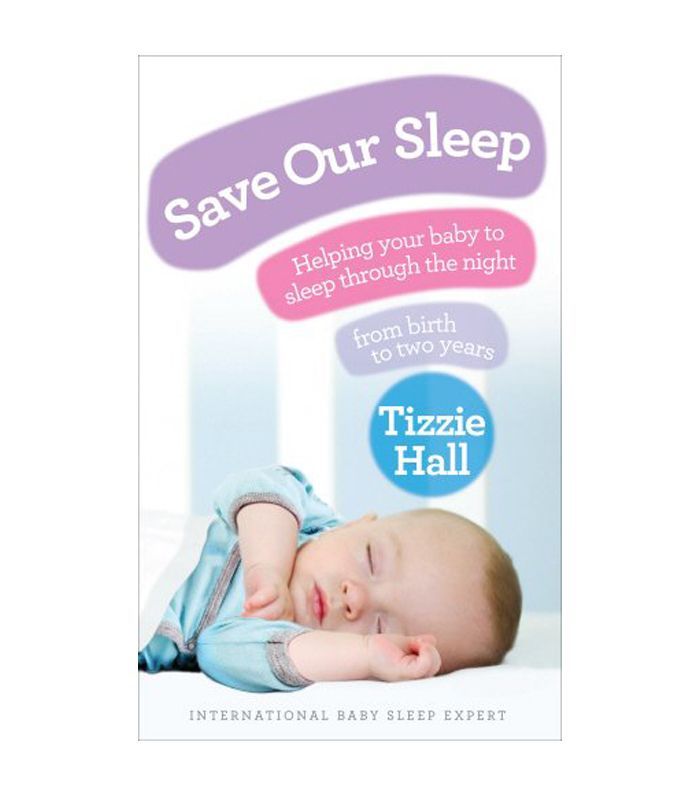 To do this, start a night light in the room and be ready to feed as soon as the baby wakes up. Sleep in comfortable nursing clothing if you are breastfeeding.
To do this, start a night light in the room and be ready to feed as soon as the baby wakes up. Sleep in comfortable nursing clothing if you are breastfeeding.
How many night feeds does a baby need
The smaller the child, the more often he needs to be fed. But over time, the digestive tract gets stronger, and the baby can eat more and endure longer breaks between meals. Below is an approximate number of night feedings, depending on the age of the baby:
1. For breastfeeding, combination breastfeeding, and infants with reflux:
Age
Number of nightly feedings
0-3 months
Breastfeeding on demand approximately every 2-3 hours
3-3 4 months
2-3 times on demand or every 3-6 hours
5-6 months
1-2 feedings
7-9 months
1, possibly 2 times
10-12 months
sometimes 1 feeding
12+ months
usually no night feedings
3-4 months
1-2 times a night or every 3-6 hours on demand
5-6 months
possible, 1 feeding
7+ months
usually no night feedings
See also: Healthy eating: how much should a child eat before the age of one?
Important!
During growth spurts, your baby should be fed as needed.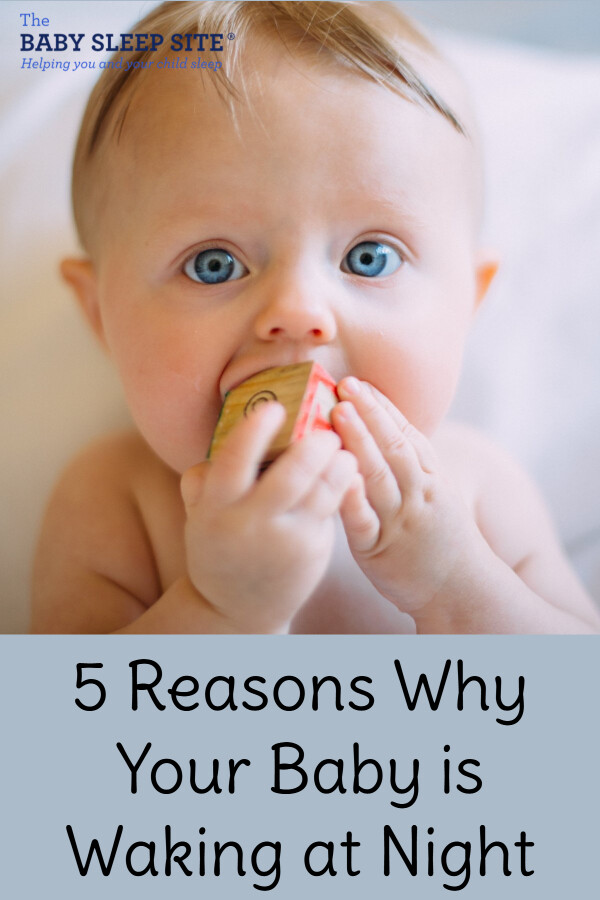 Such bursts occur at about 5, 8, 14, 19, 26, 37 and 46 weeks of age and last about 7 days.
Such bursts occur at about 5, 8, 14, 19, 26, 37 and 46 weeks of age and last about 7 days.
How do you know if your baby is ready to give up nighttime meals? After this period, the need for nightly meals depends on the pace of development, individual needs and the health of the child. If the baby was born prematurely or is not gaining weight well, experts recommend waking him up 3.5-4 hours after the previous feeding and offering the breast.
Advice
If you're not sure if your baby is ready to stop feeding at night, talk to your doctor. The specialist will help you understand and make the right decision based on the physical indicators of your child.
If the baby is healthy and has a good weight, somewhere between 4 and 6 months old, he will begin to get enough calories during the day so that he does not need to feed at night. In breastfed children, this process may be a little slower - up to 6–10 months [2].
It is also important to take into account that the refusal of nighttime "snacking" occurs gradually: there are very few cases when a child stops eating at night and immediately starts sleeping 5-6 hours in a row. Usually, babies who are used to eating several times a night wake up out of habit, and it will take time to change this routine. First, the baby will ask for food half an hour later than usual, then an hour, a little later - two, and so on. Step by step, over several weeks, night sleep reaches 6-7 hours in a row. This joyful moment can come at 4 months or closer to 12 months: all babies are unique, and it's not scary or unusual for an infant to sleep much longer without food, while an older child keeps waking up to eat.
Usually, babies who are used to eating several times a night wake up out of habit, and it will take time to change this routine. First, the baby will ask for food half an hour later than usual, then an hour, a little later - two, and so on. Step by step, over several weeks, night sleep reaches 6-7 hours in a row. This joyful moment can come at 4 months or closer to 12 months: all babies are unique, and it's not scary or unusual for an infant to sleep much longer without food, while an older child keeps waking up to eat.
Advice
Dentists recommend avoiding nighttime feedings for children older than one year, as food leftovers in the mouth can damage milk teeth. This risk is minimal when breastfeeding.
Also, remember that a child has many other important needs. Perhaps he wakes up and calls you, not so much for food, but for comfort and closeness. What could be more reassuring and safer than the caring hands of parents who feed and cradle?
Read also: Stages of development of the child's psyche up to a year.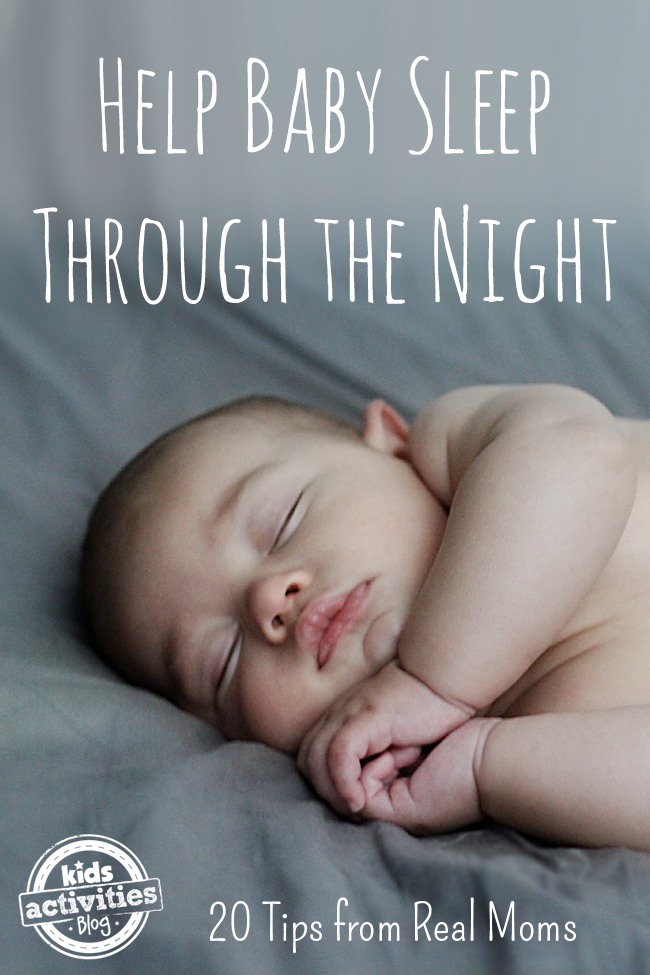 Conditions for adequate development. Mother's role
Conditions for adequate development. Mother's role
How to wean a child from night feeding: expert advice
Many parents are interested in how to properly wean a baby from eating at night so that it does not become a lot of stress for him. Especially if the baby stubbornly refuses to give up night feeding.
- Start the weaning process slowly and gradually. Slowly reduce your nightly breastfeeding time or give your baby less milk (mixture if formula-fed) from a sippy cup. Try to extend the intervals between feedings.
Important!
Under no circumstances should the issue of night feedings be turned into a battlefield. The “cry - stop - wean” method loosens the baby’s nervous system and can provoke severe stress.
- Make sure your child eats well during the day. Babies become more active as they get older, and if they get carried away playing or walking, they may skip meals or not eat enough and then try to make up for it at night.
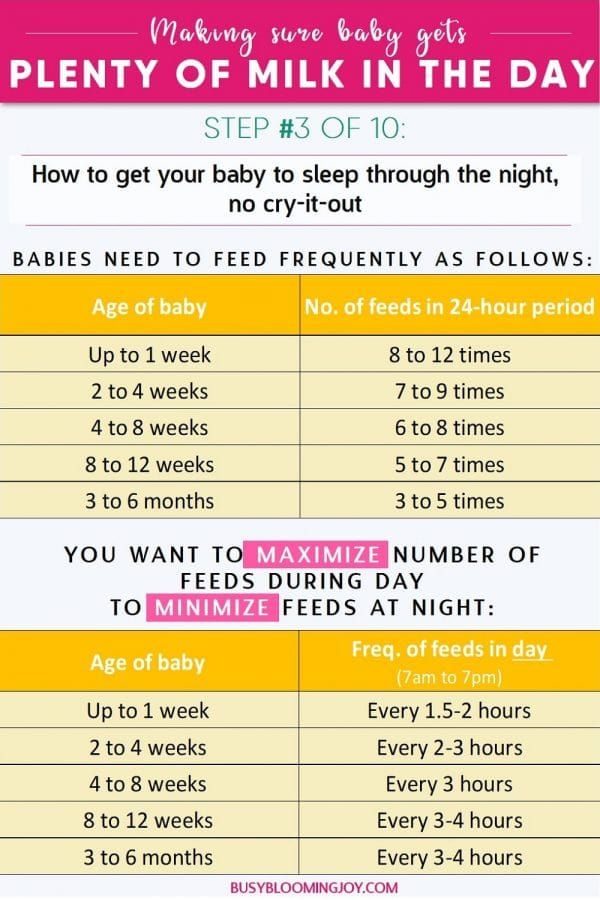 Therefore, take scheduled breaks during the day for "silent feeding" in a place where nothing will distract the crumbs from eating.
Therefore, take scheduled breaks during the day for "silent feeding" in a place where nothing will distract the crumbs from eating.
Advice
If you're not sure if your child is eating enough, check their height by weighing them at the doctor's office.
- Try feeding your baby before bed. If a child goes to bed with a full tummy, they are less likely to wake up hungry in the middle of the night.
- Ask dad to wake up at night. If an awakened baby hears your smell or the aroma of breast milk, this can provoke his appetite, even if the baby did not wake up because of hunger. If you sleep in the same room, it's best to move the crib to dad's side.
- Phase out feedings one at a time. When the baby wakes up to eat at night, go to him and reassure him, gently but firmly explain that now is the time to sleep, not eat. At the same time, pat and stroke the child on the back or tummy, but do not pick him up. Even if the baby does not yet understand your words, he gradually catches the meaning, and your presence and attention will be soothing to him.

See also: How to calm the baby?
- Try giving your baby water to drink. Babies may wake up at night not from hunger, but from thirst, especially in hot weather or in a room with dry air. If after half an hour the baby wakes up again, feed him, and if not, then he is full and satisfied.
- If the baby has been crying inconsolably after stopping night feedings for several days in a row, stop the attempt and return to your normal routine for a while. Let the baby calm down and start weaning him again in a week or two.
- Do not stop feeding at night during the transition period. For example, when you are going to return to work or go on vacation without a baby. If your baby sees less of you during the day, try to hug and interact with him more in your free time. It is necessary that he clearly feels your connection and care, then the baby is less likely to seek solace in the middle of the night.
- If the baby continues to require nighttime feedings, try to create conditions in which he does not want to eat.
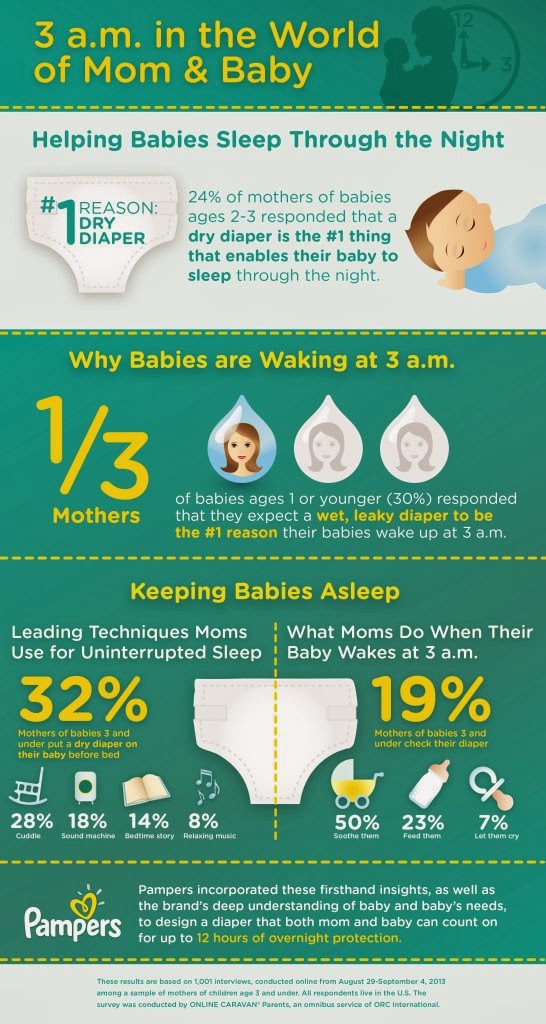 A great opportunity appears at 8-9months, when the baby is already confidently eating complementary foods. To do this, move the usual bowl of porridge to the evening: this way the child stays full longer and may not ask for an extra portion of food at night.
A great opportunity appears at 8-9months, when the baby is already confidently eating complementary foods. To do this, move the usual bowl of porridge to the evening: this way the child stays full longer and may not ask for an extra portion of food at night.
See also: Introducing complementary foods to an infant
Advice
Do not give your baby new complementary foods at night, introduce them only in the morning. Otherwise, you run the risk of observing the reaction to unfamiliar complementary foods instead of sleep. Also, do not give your child meat at night, it is hard to digest, can cause discomfort in the stomach and restless sleep.
Also keep in mind that the decision to not feed at night depends in part on how it affects you. If you enjoy breastfeeding or drinking from a cup at night, there is no reason to stop: at a certain point, the baby will stop asking for food on its own. But if you feel that lack of sleep prevents you from living and enjoying motherhood, and the baby is already physically ready for change, it's time to try switching to a daily routine. In any case, you should do what is best for you and your family.
In any case, you should do what is best for you and your family.
FAQ
1. How often should a newborn be fed?
A newborn needs to be fed every 2-3 hours, i.e. 10-12 times a day. Further, the intervals between feedings gradually increase to 3-6 hours, and the child gets the opportunity to sleep all night.
2. How much should a child eat per day?
The daily "portion" of food for the baby depends on his age and weight. From 10 days to 1.5 months, the baby needs such an amount of food, the weight of which is approximately 1/5 of the child's body weight. From 1.5 to 4 months - 1/6 of the baby's weight, from 4 to 6 months - 1/7, from 6 to 8 months - 1/8, from 8 to 12 months - 1/9.
3. What happens if you don't stop night feedings?
Most likely, the child will eventually refuse them himself. But some pediatricians, notably Richard Ferber [1], warn that unnecessary nighttime feedings can cause sleep problems. Also, food leftovers after late “snacks” can provoke the development of caries in milk teeth.

 Age can vary from 9 to 24 months.
Age can vary from 9 to 24 months. 